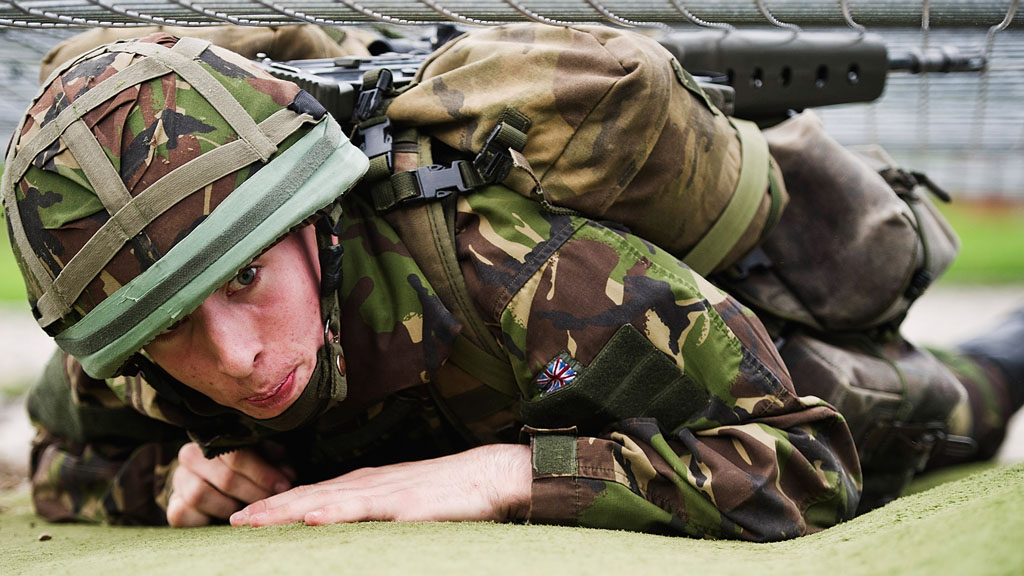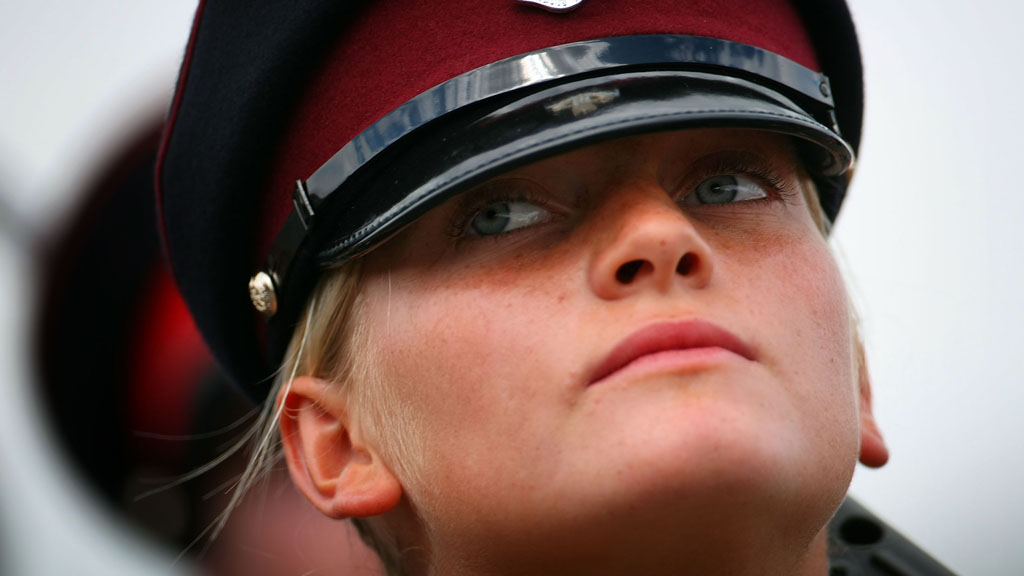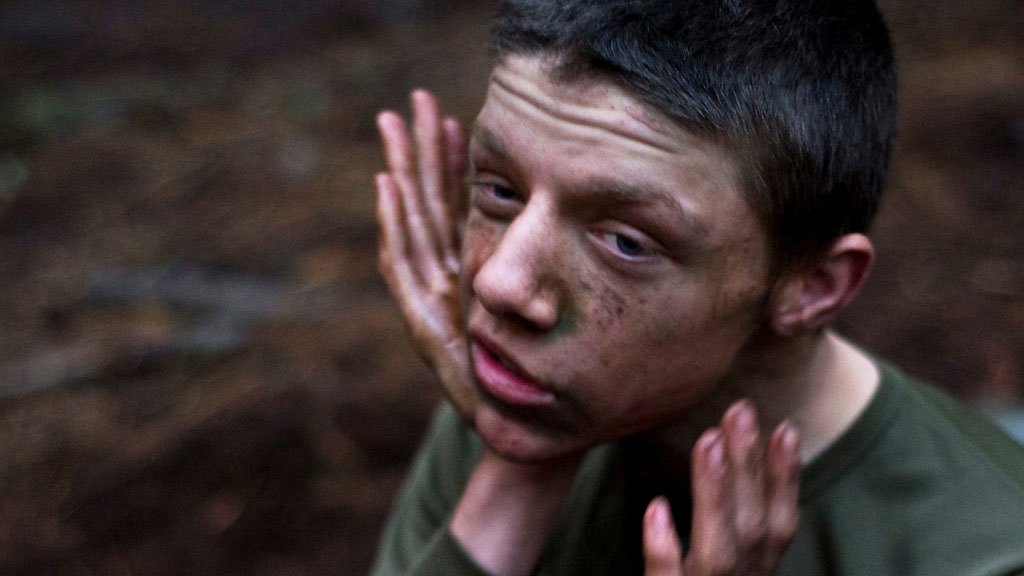Exploitation or proud tradition? Britain’s child soldiers
Campaigners launch a new attack on the army’s policy of recruiting children as young as 16. But veterans says it is a time-honoured way of offering troubled teenagers a better life. Who’s right?

The campaign group Child Soldiers International has lodged a claim for judicial review into Ministry of Defence rules on young soldiers.
The group says you effectively join up for six years if you enlist before the age of 18, instead of four if you join as an adult. Its lawyers say this constitutes unlawful age discrimination and violates European law.
It is the latest in a string of attacks on way the British army treats minors in its ranks. Ultimately, Child Soldiers International and other campaigners want parliament to raise the minimum age of voluntary recruitment from 16 to 18.
One of the ways (to leave home) not being particularly well-educated, was to join the army Ronnie Whiteside
Britain is the only nation in Europe and one of only 17 countries in the world where children as young as 16 can join the armed forces. The recruitment process can start from 15 years and 7 months but children can only join with their parents’ consent.
MoD rules say young recruits cannot be deployed on active service, although there have been cases of 17-year-olds “inadvertently” sent in battle.
Under-18s who sign up for the army have a legal right to leave after the first 28 days of service within the first six months. After that “unhappy minors” can apply to leave at their commanding officers’ discretion.
In 2011 Channel 4 News reported that under-18s were being detained and punished for going AWOL after saying they wanted to quit. The MoD said at the time that it was “aware of no cases where those under 18 who had expressed a wish to leave the services were unable to do so.”
The case against junior soldiers
Child Soldiers International said the army encourages the youngest potential recruits who have not yet sat their GCSEs to miss out on a proper education, saying: “As there is no minimum entrance qualification for many army roles, there is no incentive for would-be recruits to work towards their exams.”
The group also says soldiers who had enlisted at 16 had a 50 per cent higher chance of being killed in Afghanistan.
This was probably because younger recruits are over-represented in the infantry, where fatality rates are highest, and because under-18s tend to have a longer Army career on average than those who join as adults.
The group also claims that it is not cost-effective for the army to train minors.
The latest MoD figures show that 17.8 per cent of all new recruits who joined the army in 2013/14 were under 18, down from 21.6 per cent in 2010/11.
Case for the defence
Senior army officers have consistently defended the practise of recruiting under-18s, some of whom go on to become senior officers.
Colonel Richard Kemp, the former commander of British forces in Afghanistan, said “some of the finest soldiers I commanded” had enlisted at 16.
Well-known soldiers who joined up before they were old enough to vote include ex-SAS sergeant Andy McNab, author of Bravo Two Zero. McNab joined the Royal Green Jackets at 16 and credits the Army with rescuing him from juvenile delinquency and giving him an education.

‘It got people like me and gave them discipline very early on’
Ronnie Whiteside, a retired major in the Royal Scots Dragoon Guards, joined what the army then called its Junior Leaders programme in the mid-1960s at the age of 15.
He told Channel 4 News: “I was living in Paisley in Scotland. If you have ever visited there, you will know why I wanted to leave as quickly as I could.
“One of the ways, not being particularly well-educated, was to join the army.
“It took somebody like me, who could have ended up on the street corners kicking my heels and doing bugger-all. I could have waited until 18 but you have still got the years of 15, 16 and 17 to survive.”
Maturity, money and education gave him “an incredible advantage” in life and he was “extremely well looked after” while a young recruit, he said.

‘They were far better off than in some ghetto’
A retired staff sergeant who worked as an instructor with what were then called “boy soldiers” in Scotland in the 1970s said starting early could be an advantage for those determined to have a military career.
“They were the leaders of tomorrow. We were teaching them leadership. If they had a bit of drive they could go quickly up the rank ladder. A lot of them go on to become senior in a very short time.”
He added: “They were far better off than in some ghetto. They got the right type of food and the dental and medical care was far, far better than what was available to them out on the street.
“They are not asked to take greater risks than the average recruit who joins at 18 – a guy who comes in off the street, does his basic training and gets sent to Helmand or somewhere. The young soldiers are better prepared because they have had two years of military training.”
The Ministry of Defence said in a statement: “A career in the Armed Forces provides young people with a wealth of benefits and opportunities, equipping them with valuable and transferable skills for life, so it is encouraging that young people continue to recognise this and are coming forward to serve their country.
“We have established procedures in place to ensure that no one under 18 may join our Armed Forces without the formal written consent of their parent or guardian and no one under 18 can deploy on operations.”